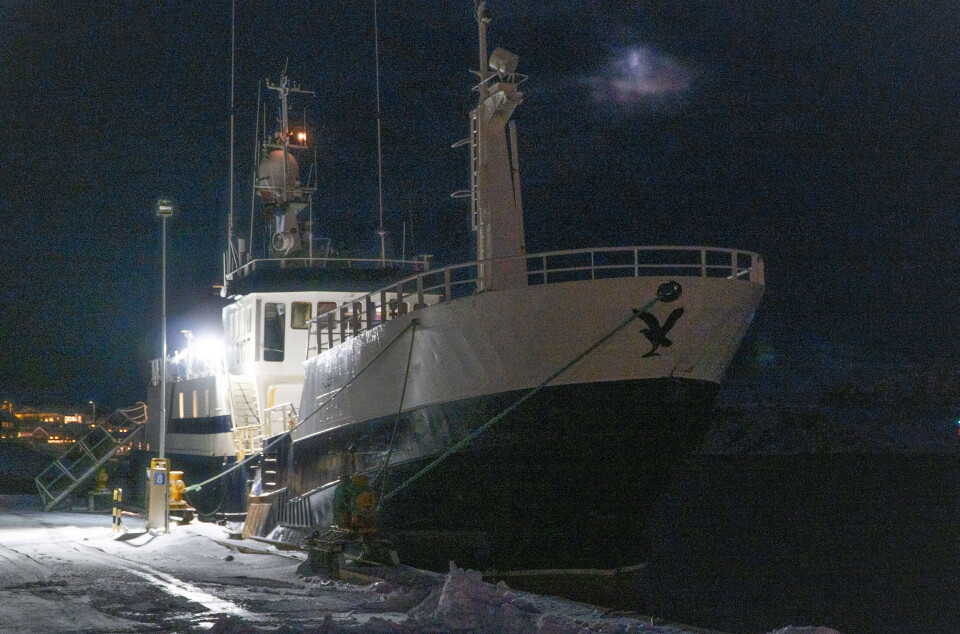
Norway confiscates Russian fishing vessel which was ordered to leave last winter
The Government has decided to take over the ownership of the Azurit because the Russian owners did not follow an order for the ship to leave Norway.
"This vessel will now be removed from Båtsfjord harbour," assures Marianne Sivertsen Næss, Minister Fisheries and the Oceans.
The Russian-owned Azurit has stayed in port since May 2024.
Sivertsen Næss says various solutions have been considered after the Government last December ordered the vessel to leave Norway.

"It was now absolutely necessary to make a decision on state takeover of the vessel," the Minister makes clear.
The Government considered the vessel to pose a risk and said "national security interests are threatened."
The decision on Friday is effective immediately and means that the state will have full control over the Azurit. The Norwegian Coastal Administration will be tasked with removing the vessel, the Government says in a press release.
The remaining Russian crew onboard will have to leave Norway.
Sanctions
Norway was about to introduce exceptions to EU-sanctions on Russian vessels at European ports after the outbreak of the full-scale war against Ukraine in February 2022. Later, measures were taken to strengthen control and port calls were limited to three ports.
In July 2024, the Government tightened the rules further, granting Russian-flagged vessels permission to stay in port for a maximum of five days. The ports open in addition to Båtsfjord are Tromsø and Kirkenes.
The new regulations were introduced amid increased fear of hybrid sabotage operations across Europe by actors linked to Moscow.
Member of the Norwegian Parliament, Ola Elvestuen, has previously said to the Barents Observer that all ports, including Tromsø, Båtsfjord and Kirkenes, should be closed for all Russian vessels.
New rules were introduced in July this year, banning the two largest Murmansk-based fishing companies, Norebo and Murman Seafood, from entering any ports in Norway.
The two companies were also denied fishing in the Norwegian Exclusive Economic Zone.
Foreign Minister Espen Barth Eide said at the time that the two fishing companies were "part of a Russian state-sponsored surveillance campaign and intelligence activity targeting critical underwater infrastructure in Norwegian and allied maritime areas."
"Such activity may facilitate future sabotage operations and threaten important Norwegian security policy interests," the foreign minister added.
In response, Moscow threatened to deny any Norwegian fishing vessel access the eastern Barents Sea. Russia underlined that Norway's "hostile" approach ultimately could cause an end to the fishery agreement, which for the last 50 years has regulated quotas and the catch-regime between the two countries.














